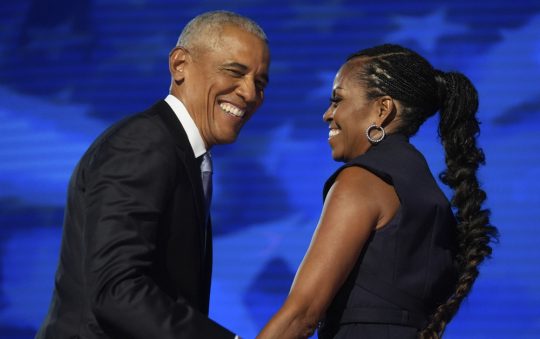
The bogus claim that America is a post-racial society is fueled not only by conservatives, but liberals and progressives as well. (Note: A post-racial America was one of Barack Obama’s campaign themes.) This hybrid collective is made up of ideological opponents, i.e., extreme right wing conservatives, ambivalent liberals and so-called progressives. Unfortunately, many Blacks also embrace the post-racial rhetoric, albeit for vastly different reasons.
White leadership downplays the primacy of race, but maintains race-based power under the mythical guise of America as a melting pot. And for many Blacks, minimizing race is part of a long- misguided attempt to assimilate into mainstream America. Clearly, they don’t seem to understand that in America-and most other nations-on the color continuum, the closer to white, “the better (off) you are.” Of course for Blacks, this means attempting to assimilate is an exercises in futility. Race remains America’s top priority- post-racial rhetoric to the contrary notwithstanding.
The late law professor, Derrick Bell’s penetrating analysis is really a primer on the implications of the continuing significance of race and white privilege. His observations continue to shed light on some seldom discussed aspects of the complex issue. Bell argued that racism is so ingrained in American life that no matter what Blacks do to better their lives they will not succeed as long as the majority of Whites do not see their own well- being threatened by the status quo. However, he also reminded us that Blacks in bondage managed to retain their humanity and faith, that pain and suffering were by no means the extent of their destiny.
Bell stressed America’s veiled dogma of race-based progress fails those who have been most marginalized; Blacks, the poor and others whom the myth ignores who must constantly call for national action that actually incorporates their life experiences. He maintained they must find inspiration in the lives of oppressed Black people who defied death as slaves and freed men, insisting on their humanity despite society’s consensus that they were an inferior people. Bell passionately argued that Blacks can only de-legitimize racism “by accurately pinpointing it as the center, not the periphery in not only their lives, but the lives of Whites and all others.”
He asserted Blacks must first recognize and acknowledge (at least to themselves) that their actions are not likely to lead to an immediate or transcendent change. And he said only then can that realization lead to public policy less likely to worsen their condition and more likely to remind the nation that they are determined to constantly challenge its power.
Professor Adolph Reed also provides provocative thinking regarding issues like the need for greater unity in combating racism and racist policies, especially because of what he calls “the devolving state of the Black community.” He argues that a Black cohesive collective is a myth, first necessary after the Civil War to present a semblance of unity. He says the leadership class defined specific Black interests, named themselves leaders, and were assumed to be so by Whites, a phenomenon that still exists today.
According to Reed, egalitarianism appealed to both the civil rights movement and capitalists because it raised no hard questions about capitalism. Rather, it stressed the immorality of racism and segregation and how they were obstacles to economic progress. But he insists Black opposition was integrated into the system in a way that strengthened, not challenged it. Reed’s remedies for improving Black life include: Breaking Black elites’ control over the ideas and political and economic priorities in the Black community; critiquing so-called Black agendas in order to transcend Black leaders serving their own interests exclusively and encouraging and supporting the diverse interests in Black communities.
Dr. Cornel West’s Nihilism in Black Americais a corollary to his seminal essay, RaceMatters. In it he argues that Blacks initially struggled against racism in the enslaved circumstances of a new world and that (apart from racism), the major enemy of Black survival in America is a loss of hope and absence of meaning in their lives. West maintains “the genius of Blacks’ forbearers was to create a powerful buffer to counter the demons of helplessness, meaninglessness and lovelessness.” And he says, “Black people have always been in America’s wilderness in search of a promised land……..but now, many Blacks now reside in a jungle with a cutthroat mentality devoid of any faith in deliverance or hope.”
These three scholars forcefully articulate the need for Blacks to debunk the internalized, debilitating myths that race and White privilege are no longer significant factors in their lives. They are part of a dwindling vanguard of intellectuals who focus on substantive and sustainable issues and solutions in the Black community.
Not surprising, Black unity is at the heart of all efforts to recapture the core values and strength of our forbearers. Despite society’s denial, Blacks must acknowledge the significance of race and shed the twin burdens of victimization and futile dependency on others. Of course, this will require renewed commitment and courage, both are critical for challenging the magnitude of problems facing our people.
Minimizing race reinforces White privilege and Black people must struggle to no longer do that. Real change, however, will also require a new mindset and struggle every day to regain the courage and self-reliance crucial not only for progress, but for the very survival of our race.






